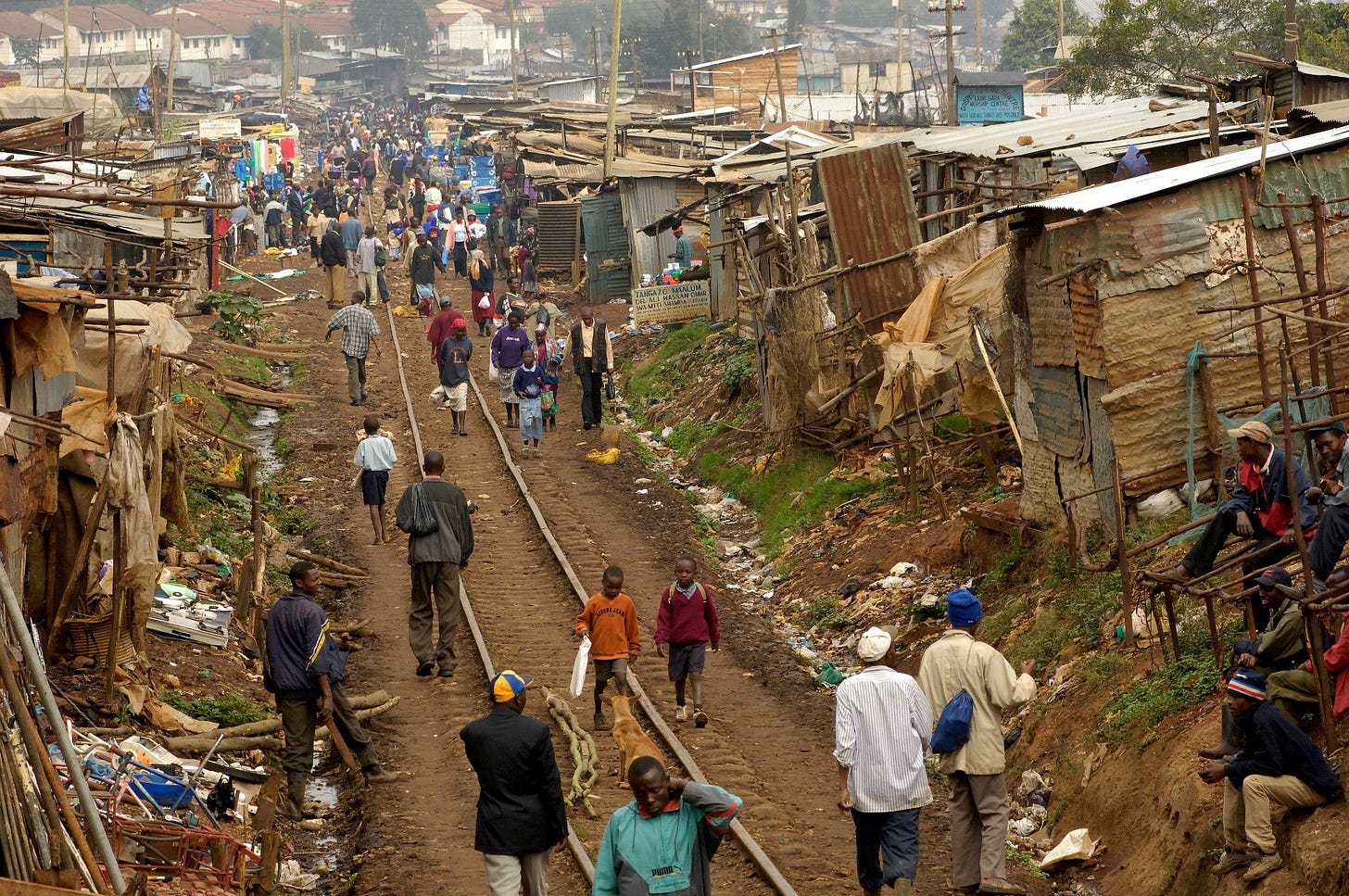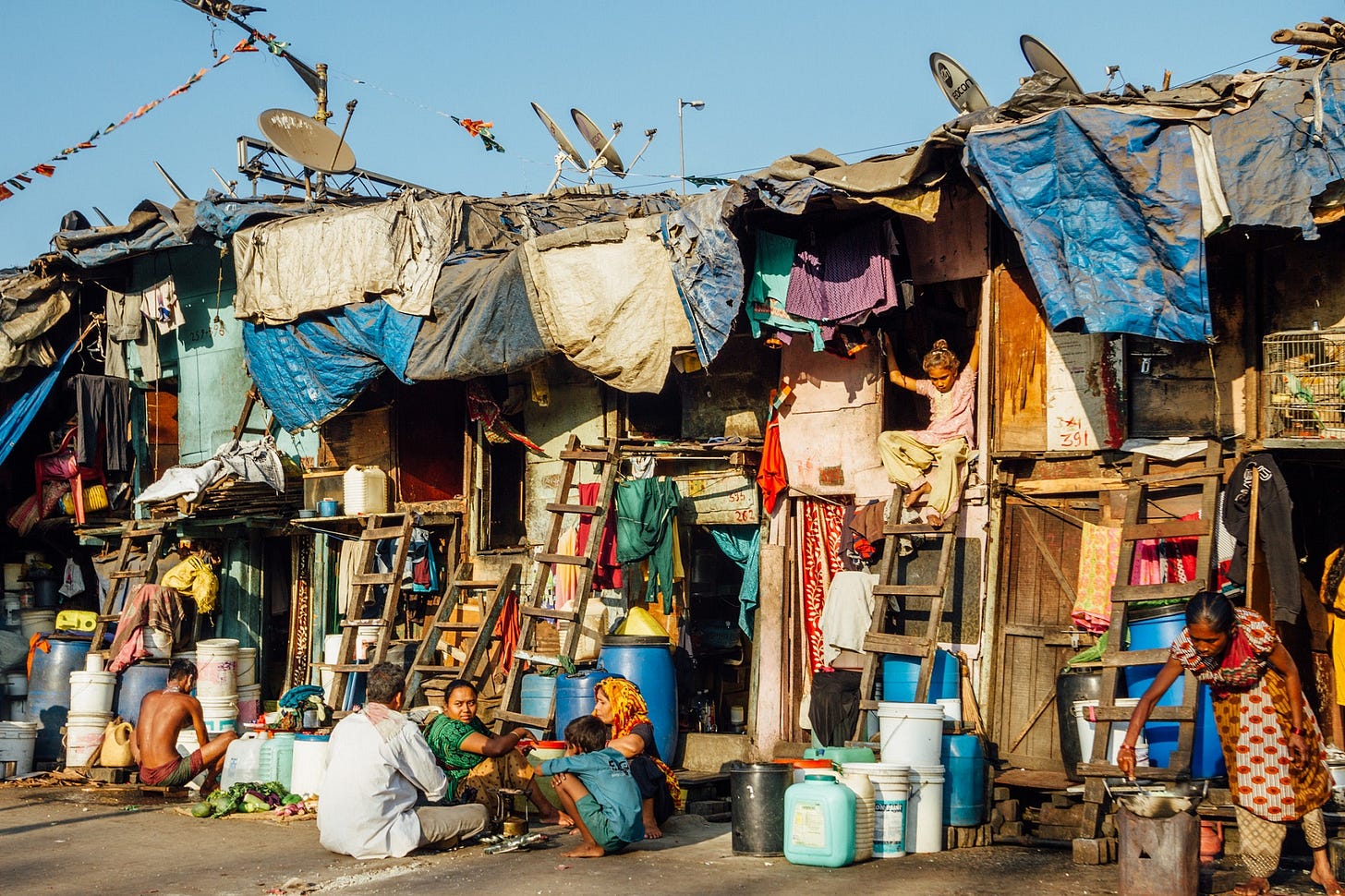A compelling explanation for Poverty and Global Inequality
And why it is better than all other explanations
In a previous article, I wrote that a significant reason for the existence of ideologies on the Left is that they have the most compelling explanation for poverty and inequality.
The Leftist explanation for inequality typically involves one or more causes from today or relatively recent history:
Bad political leaders (who are not Leftists)
Government policies (implemented by non-Leftists)
Racism
Capitalism
Patriarchy
Trade or some other economic force
Colonialism
Exploitation
War
Slavery or the legacy of slavery
Regardless of whether you agree with those explanations, you cannot argue that they are morally compelling. And I do not believe that any non-Leftist explanations are equally compelling from either a moral or factual viewpoint.
Results vs good intentions
I promote a Progress-based perspective that I believe is far superior to the ideologies of the Left:
The Left focuses on good intentions (and typically ignores results)
The Progress-based perspective focuses on results.
This makes the Progress-based perspective far more flexible and effective, as its policies and practices can pivot based on results.
But I digress. Let’s get back to compelling explanations of inequalities and poverty.
Towards a Progress-based explanation for poverty and inequalities
Because of all the above, it is very important that we come up with competing explanations for poverty and current inequalities within and between nations.
The explanation must:
Be simple enough that regular everyday people can grasp it.
Be convincing to regular everyday people (the ideologues will never be convinced, but they are in the minority).
Disprove the prevailing narrative on the Left (and the narratives of other ideologies).
Accurately fit the facts both today and in the past.
Lead to policy reforms that can plausibly benefit:
the working class, poor, and racial minorities in wealthy nations
developing nations.
Be testable in the real world with systematic policy evaluation.
The simple explanation
Below is the shortened explanation for regular everyday people.
I believe poverty and current inequalities within and between nations can be explained by the following:
Poverty, inequality, ignorance, and war are the natural state of humans. It is only quite recently that most of us have been able to live in relative prosperity.
Inequality cannot be eliminated without destroying prosperity and individual rights.
Long-term economic growth (progress) benefits the working class, poor, racial minorities, and developing nations much more than government social programs over the long run.
The fact that some people benefit more from progress than others does not invalidate the benefits of long-term economic growth.
Rather than Equality, we should be aiming for Progress and Upward Mobility.
The sophisticated longer version
Below is the longer and more sophisticated explanation for progress skeptics who demand more evidence and precision.
I believe poverty and current inequalities within and between nations can be explained by the following:
Poverty, inequality, ignorance, and war are the natural state of humans. It is not because bad people did bad things to good people. It is because humans are biological organisms that evolved from other animals that had similar natural states.
Humans, like all biological organisms, are constrained by a need to survive and reproduce. To do so, we need to consume energy in the form of food from the natural environment.
Geography seriously constrains the types of food that can be produced in each region. Technological innovation can only loosen these constraints so much.
Those geographical constraints forced human societies to evolve in very different directions. We can categorize those different types of societies into society types.
By accident, one of those society types, Commercial societies, invented human material progress sometime after 1200. They were able to do so because of unique geographical and political conditions that were not inevitable.
Progress is an evolutionary process. By that, I mean that no person, institution, or God is in charge of it. It resulted from humans accidentally discovering certain fundamental preconditions, which I call the Five Keys to Progress.
Once a few societies discovered the Five Keys to Progress, they created a vast, decentralized problem-solving network. Instead of people competing against each other for scarce resources such as food, status, and land, individuals can focus on solving each other’s problems at scale by cooperation.
Like all evolutionary processes, progress spreads very unequally across the globe and within societies. So at any one time, one can see:
Vast inequalities left over from the past. The reason that some people or societies have not yet experienced progress is because of long-term historical factors that go back millennia.
More societies experience progress as they copy what works in other societies. Particularly since 1990, progress has been spreading across the globe and dramatically increasing the standard of living of the masses.
More individuals within those societies experience upward mobility as they copy what works for other members within their own society.
A snapshot at any given time completely misses the trend.
Looking at just one nation over a short period also completely misses the trend.
The solution to continued poverty and inequality is not government programs, political protest, or violent revolution. It is maintaining the foundations of progress so that it will spread to all people.
Rather than Equality, we should be aiming for Progress and Upward Mobility. Progress is the increased material standard of living for societies, and Upward Mobility is the increased material standard of living for individuals living within those societies.
So how do we do about that?
One of the key goals of my work is to replace the current Left, which I believe undermines the foundations of Progress and Upward Mobility, with a new Progress-based perspective that is far more effective.
We cannot eliminate Inequality, but we can reduce poverty greatly with the following principles:
Create a prosperous working class.
Promote a clear pathway that enables youths from low-income families to enter the prosperous working class.
Reform the political process to make all the above possible.
See more articles that explain poverty and inequality and how to promote Upward Mobility:
I also will be writing a significant number of excerpts from my forthcoming book: Upward Mobility: A Radical New Agenda to Uplift the Poor and Working Class. Most of these excerpts will only be available to paid subscribers.
Other books in my “From Poverty to Progress” book series:











The simple explanation doesn't explain the thing that it's supposed to explain. A dialog:
Simplicio: Why are some people rich and others poor?
Leftso Marxson: Well, the rich people are bad and stole all the wealth from the poor.
Simplicio: Ah, ok, that makes sense. But let's hear an alternative opinion.
Progress Guy: Sure! Inequality is because everyone in a state of nature is dirt poor.
Simplicio: Ok, that makes sense, but that doesn't explain why some people are rich now?
Progress Guy: Well, inequality cannot be eliminated without destroying prosperity and individual rights.
Simplicio: That sounds more like a response to the leftist than an answer to the original question.
Progress Guy: Long-term economic growth (progress) benefits the working class more than government intervention.
Simplicio: Once again, that sounds more like a response to the leftist. What about the original question?
Progress Guy: Ok sorry, let me try again. The fact that some people benefit more from progress than others does not invalidate the benefits of long-term economic growth.
Simplicio: That's still just a response to the leftist.
Progress Guy: Rather than Equality, we should be aiming for Progress and Upward Mobility.
Simplicio: Well, if you can't explain why some are rich and some are poor I guess I'll go with Lefto.
[Slow fade out while society goes down the drain.]
This is a compelling exploration of this topic and the framing around it.